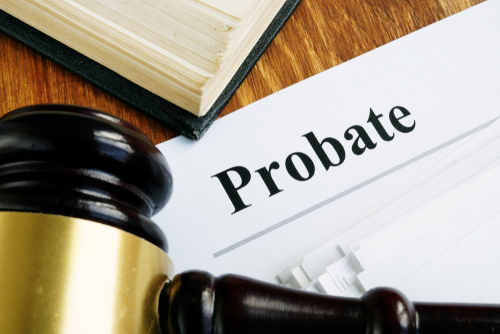Suppose you find yourself named as the executor of a friend’s estate. While you want to honor your friend’s last wish, you may wonder about the time commitment.
Keeping an estate open refers to the time between the death and the assets being fully distributed. State laws typically govern the specific timeframe for keeping an estate open after death, but the average is about two years.
The duration an estate remains open depends on how fast it goes through the probate process, how quickly the executor can fulfill their responsibilities, and the complexity of the estate.
Probate Deadlines
Most states have a deadline for filing in probate court. This typically varies from 10 days to three months. It is essential to meet this deadline because the longer it takes for an estate to go through probate, the longer beneficiaries must wait for their inheritance.
Besides filing the last will and testament with the probate court, the executor must complete forms to initiate the probate process. While most executors take care of filing in probate court and initiating the probate process at the same time, probate courts typically allow the executor 30 days to start the probate process.
If the executor does not start the probate process before the deadline, other interested parties, such as the beneficiaries, can choose to initiate probate.
The executor must also file a notice to creditors. They contact anyone who is owed money from the deceased person’s estate. Creditors typically have between one and four months to request payment. If they do not meet this deadline, the debt is forfeited.
If the executor cannot meet the probate deadlines, they may file for extensions. Of course, the court can remove them and appoint someone else to be the executor, or hold them in contempt of court if the extensions are not made for valid reasons.
What does the probate process entail?
Although the timeline varies by state, the following are the typical steps in the probate process:
- The executor files the probate petition, death certificate, and last will and testament with the court. When the court receives the information, it will schedule a hearing. The judge will open the case and either approve the executor or appoint an administrator if the decedent dies without a will (intestate).
- The executor will notify all interested parties, including beneficiaries, heirs, and creditors.
- The executor will inventory and appraise the decedent’s property after notifying all interested parties. An executor frequently hires an appraiser to assist with this process if any of the property is difficult to value or if the estate is large.
- Creditors have one to four months to file claims on the estate. Once this deadline has passed, the executor pays off the decedent’s debts.
- Once all debts are cleared, the executor requests permission from the probate court to distribute the remaining assets. The executor will be in charge of accurately accounting for all of their activities while paying creditors and distributing assets.
Smaller estates may be eligible for a simplified probate process. If the decedent’s estate meets certain criteria, it may move through the probate process more quickly.
When does the estate really close?
Closing an estate means that the executor has fulfilled all of their obligations in probate court, and there is nothing left to be done except to distribute the assets.
The executor should provide an accounting to the beneficiaries that shows:
- The estate assets and their appraised values
- The debts owed by the decedent and how they were settled
- The expenses paid on behalf of the estate, including taxes
Once the beneficiaries review the accounting and sign off on it, the assets can be distributed. Once this process is completed, the executor can file a petition with the probate court to close probate. The court will review the petition and move to close the estate.
What happens next?
The federal Uniform Probate Code allows beneficiaries and creditors up to one year to file complaints against the executor or the estate itself. However, individual states may allow for a longer time frame. Complaints are filed if someone believes the executor mishandled the estate.
For example, creditors may file a complaint if they believe the executor did not give them enough notice to file a claim against the estate for unpaid debts.
Since creditors and beneficiaries can file complaints well after the probate process is finished, some may argue that an estate is never closed.
Probate can be a lengthy and time-consuming process. If you have been designated as an executor and feel unsure about the extent of your duties or responsibilities and would like to learn more about your legal rights, please get in touch with us.
You can schedule a call with us or reach us directly at 855.631.3457 to learn more about how to best plan today to protect those most important to you.








